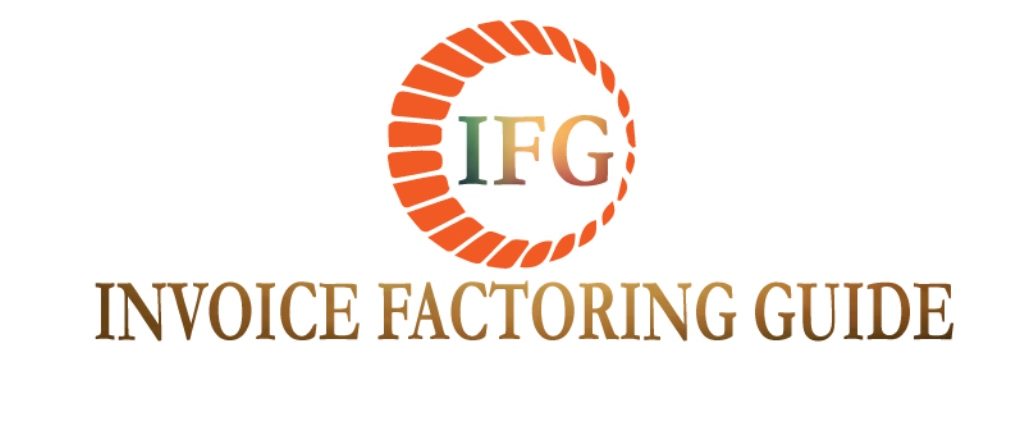An Invoice Factoring Guide for Business
Welcome! If you’re a small business looking for information about invoice factoring, you’ve come to the right place. We are staunch advocates for factoring- a funding option that doesn’t incur debt. Today, small businesses need to be wary of the amount of leverage in our financial system and the dangers of being overly-indebted.
 What is Invoice Factoring?
What is Invoice Factoring?
Invoice factoring is the discounted sale of accounts receivable to a third-party. It’s a funding strategy that provides fast funding without debt. That is because the sale of outstanding invoices is an asset sale, not a loan.
The idea has been around for centuries-Greek merchants utilized the practice to finance lengthy shipping ventures. Today, factoring is basically the same.
When a small business performs a service or delivers goods on credit, they invoice their business customer, and wait for payment. And wait. This can take 30, 60, even 90 days depending on the customer and the net terms.
The resulting cash flow deficits makes running a business very challenging. Your business has to make payroll, buy inventory, pay bills and accept new projects. Instead of waiting for payment (and spending valuable resources on collection efforts) businesses sell their outstanding invoice to a third-party factoring company. Effectively, the business has sold the rights to collect on the invoice to the factoring company.
How does Invoice Factoring Work?
Here’s an example. Assume a factoring company is considering buying a number of outstanding invoices from a small business. They conduct due diligence on the invoiced customer, including credit checks and searches for outstanding liens and lawsuits. The factor is confident of repayment, and decides to advance you 90% of the invoice’s face value.
The account debtor is now instructed to remit payment to the factoring company, not your small business. When the account debtor eventually pays the invoice, the remaining 10% balance is refunded to you, less a factoring fee of usually around 2%.
In this example, the transaction provided an advance that kept operations running smoothly. When the invoice was eventually paid, your business collected a total of 98% of the original invoiced amount, while greatly improving cash flow. Cash flow is the lifeblood of small business.
Who is Factoring Invoices?
Invoice factoring, also known as accounts receivable factoring, is typically utilized by those in the B2B space. It’s common among industries that offer credit sales or endure lengthy delivery or project completion times. Construction, transportation, staffing, food and beverage distributors, commercial cleaning businesses, government contractors and import-export businesses routinely factor.
However, as technology has caught up to this historic financing method, new industries have started factoring receivables. These include medical billers, professional services (accountants and consultants) and even freelancers. As the gig economy expands, the market for freelance factoring is an exciting prospect.
The internet has improved the factoring industry as a whole, decreasing overall costs for users. Greater transparency and availability of information has reduced credit service and other due diligence costs- while the electronic payment revolution has made funding faster and cheaper. Further, many businesses get invoices funded directly with one click via their QuickBooks or FreshBooks accounting software.
We offer a list of invoice factoring companies including Bluevine, Fundbox, Fleet One factoring, Riviera Finance, OTR Capital and Apex Factoring). You’ll notice that some of these are trucking factoring companies (given the nature of their payment cycle), while others are gravitating more online.
Analyzing many variables, we created a numeric rating system on our reviews page for many of these names. These include our Lendio reviews, Ondeck reviews, Fundera reviews, Bluevine reviews and Kabbage reviews.
Benefits of Invoice Factoring
Immediate Cash Flow
Adequate cash flow is critical to business. In fact, 82% of small business failures are the result of poor cash flow management according to a U.S. Bank study. And despite the prevailing economic optimism, just 28% of small businesses receive loan approvals from the big banks, according to an October 2019 small business lending report from Biz2Credit.
Factoring provides quick funding, often same day, that can be used to meet short term liabilities and improve net working capital. It benefits the bottom line as businesses can capitalize on supplier discounts by ordering in bulk or pre-paying.
With factoring, this initially funding comes through the “advance”. The invoice factoring company will assess the financial health of your customer and decide on an amount, typically between 75% and 90% of the invoice’s face value. Some will advance a full 100% of the face value as we point out in our Fundbox reviews page.
Funding without Debt
Factoring is not a loan- it’s the sale of accounts receivable to a third party. As such, the funding comes without additional indebtedness. It is a great small business funding option when credit conditions tighten.
The reason many small businesses pursue alternative financing in the first place is because they’ve been turned away by traditional banks due to bad business credit. But it’s the creditworthiness of your customer that matters to the factor, since they collect from them, not you. Invoice factoring provides collections services so you can get back to running your core business.
Conversely, invoice financing is a revolving line of credit. Here, the invoices are used as collateral for financing, making it one of our favorite bad credit business loans. Secured financing generally offers lower rates than unsecured forms, like small business credit cards.
Credit Risk Management
In a non recourse factoring transaction, the factor assumes the credit risk of the account debtor. This essentially transfers the credit risk onto the factoring company. While adding the “non-recourse” clause is slightly more expensive, it’s a valuable risk management tool if you have a high concentration of receivables with one customer. (where their default could jeopardize your operations). It does not protect if they won’t pay because of a defective or late shipment or dispute over other terms.
Invoice Factoring Fees 101
As part of the discovery process, remember that factoring financing involves two distinct components, a factoring and discount fee.
Factoring Fee
In general, a factoring company will charge 1%-3% as their factoring fee. Non-recourse factoring fees should be closer to the higher end while discount factoring will lean towards the lesser percentage. Of course, it’s a bit of a push-pull with the advance rate. Sometimes, larger advertised advance rates come at the expense of higher invoice factoring rates and vice versa.
Discount Rate
While the often advertised factoring fee is important, it’s actually the discount rate, not necessarily the factoring fee, which can make invoice factoring an expensive funding source. So make sure you find out which “fee” the factor is quoting, and the amount for each.
Check on Checks
No one knows your customers better than you. If they are “old school” they probably still pay with checks. Unfortunately, this is a common charge that small businesses don’t consider when choosing an invoice factoring company. In some instances, factors impose a harsh 20% penalty for any invoices paid with checks. Imagine being marketed low factoring fees but then incurred a 20% charge for a particularly large invoice!
Interest Charges
It may not make sense to factor receivables from your slowest paying customers. Why-because they are likely to be the most expensive. Daily interest charges by factors can add up, making invoice factoring an expensive option. In these instances, it may be better to entice prompter payment with new payment terms that include an early pay discount.
When dealing with factors, get in the habit of billing customers immediately upon providing the service. Keep records of the exact time a copy of an invoice is sent (if a copy, and not the original, is even allowed!). And don’t choose a partner that requires you factor all invoices. Ask these questions up front!
No Charge
Make sure you ask for a list of things the factor will NOT charge for. As strange as this may sound, it can be very important, especially if you’re new to invoice financing. You could end up paying for incidentals including submitting photocopied bills and payments made by check.
The factoring agreement will spell out all of the financial policies of the company. There are plenty of invoice factoring attorneys that will be more than happy to review this document for a prospective customer. Don’t feel bad- you can be sure the factoring company has their own legal counsel. If the factoring company will not provide this information, keep shopping!
How Financially Fit is your Factor?
A factoring company essentially becomes a financial partner, so consider these questions when vetting them. Does the factor provide the working capital from their own balance sheet or are they back-stopped from a bank (either may be fine, depending on your business’ needs)? Here are some examples of why working with a fiscally sound factor is so important.
1- For import-export businesses, factors can provide letters of credit for key suppliers. But to secure these guarantees, the factoring company will need strong credit itself. Ironically, the factor’s creditworthiness will now be scrutinized by the suppliers when deciding whether to ship essential raw materials. This is especially important for very small businesses.
2- When vetting smaller factors, see if they offer non recourse factoring. Remember, should the account debtor default on payment, the factor will cover the loss to the business (assuming all conditions are met).
But how exactly can a factoring company cover this loss? Typically, it’s through credit insurance from another financial institution. For smaller, mom and pop factoring companies, obtaining credit insurance can be difficult. If the creditworthiness of your customers is not an issue, then non-recourse factoring may not be necessary.
Find the Best Invoice Factoring Company for You
Understand, the best factoring company for one small business might not be the best for another. In addition to providing actual funding, consider other variables such as communication and transparency.
Communication Breakdown
It’s no coincidence that successful businesses tend to have great customer service teams. If this sounds familiar, be very careful when choosing a factoring company. Consider one with a reputation for soft skills because they’ll be contacting your customers about late payments, if that’s your arrangement. You don’t want a pushy factor wrecking the relationship between you and your customer.
The Transparency Shell Game
If you come across a factor you’ve never heard of, try and determine if the main executives came from another company or one that’s defunct. It’s such a niche financial segment that players often bounce around the industry. Sometimes, they’ll come from another operation that closed up shop and reinvented itself as a new factoring company (although the internet has done a good job of rooting out any bad actors).
We aren’t insinuating that factoring companies are shady, most are great. But many factors have been burned by a fraudster at some point in their operation. This can make them overprotective of their own business and may appear onerous to work with.
Finally, check and see if their employees have obtained the AECF designation. This provides some assurance that you’re dealing with knowledgeable and ethical partners. An organization that prides itself on compliance should require at least some employees to have the designation.
Be sure and read our reviews pages to get the scoop on specific invoice factoring companies plus asset-based and online lenders.
This page was originally written May 2016 and most recently updated October30, 2019.
Click here to add your own text



